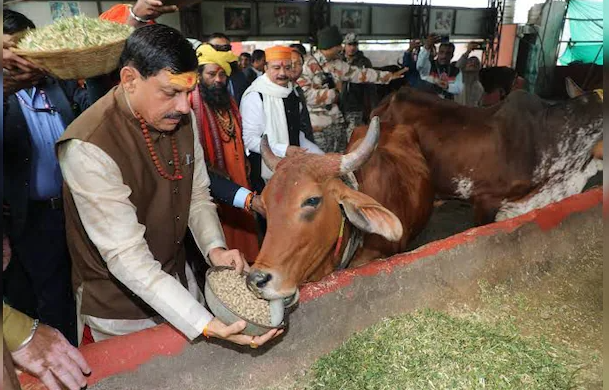The Madhya Pradesh government has signed a five-year agreement with the National Dairy Development Board (NDDB) to manage its cooperative dairy federation and milk unions. This has led to political friction, with the Congress comparing it to the Karnataka Amul-Nandini controversy.
The Opposition alleges that this agreement is a covert attempt to hand over the state’s popular Sanchi milk brand to Gujarat’s Amul, a claim the government dismisses as baseless. The Congress accuses the BJP of underhanded dealings and plans to challenge the move in Parliament and courts.
Madhya Pradesh currently produces about 5.51 crore liters of milk daily, contributing 9-10% of India’s total milk output. The state has a significant cattle population, including 2.19 crore cattle, and surpasses the national average in milk availability per person.
The government aims to double milk production in the next five years, with the NDDB creating a strategic plan. Chief Minister Mohan Yadav supports the initiative, emphasizing its potential to increase farmer incomes and establish the state as a leader in milk production.
Congress leader Vivek Tankha has criticized the decision, claiming it undermines Sanchi milk and favors Gujarat’s Amul. Animal Husbandry Minister Lakhan Patel countered, asserting that the agreement is meant to enhance Sanchi’s operations and marketing.
The NDDB has a history of successful management in various states, including increasing milk production capacities and reviving struggling dairy projects. It has also formed joint ventures to boost milk production and supply.
In Madhya Pradesh, only 2% of milk is collected through cooperatives, compared to the national average of 10%. The agreement aims to address this by improving milk collection, marketing, and infrastructure, and supporting farmers’ organizations.
Despite political disputes, the government asserts that the agreement will advance the dairy sector, benefit 40,000 villages, and enhance farmers’ incomes. The goal is to improve milk quality and expand both domestic and international markets.

